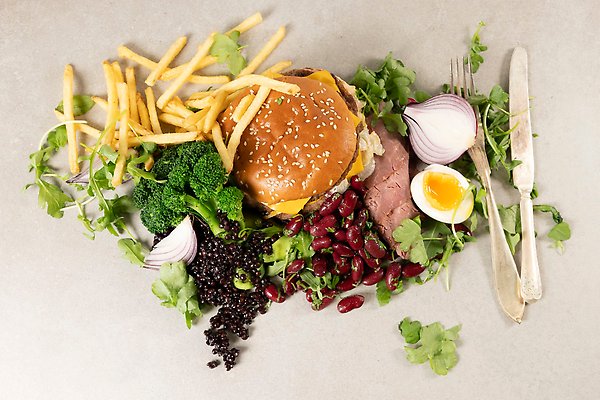“We need to have a thorough discussion about our food”

Daniel Lövgren, universitetslektor vid institutionen för informatik och media. Foto: David Naylor
A network of researchers with one thing in common: an interest in local food. One of them is Daniel Lövgren, a senior lecturer at the Department of Informatics and Media, who tells us more about the network and why we need to talk more about food.
You lead a network on local foods. What is this new network for?
The “Organizing Local Food” network brings together researchers from ten different departments and research centres at Uppsala University, but also includes researchers from other higher education institutions. In one way or another, all of us have an interest in food issues at local level. At one of our first meetings, though, we concluded that it is rare for anything to be completely local – even if the potatoes you eat are grown in a field near you, the fuel and the tractor probably come from somewhere else in the world.
The idea of the network is to gain a greater understanding of existing conditions and opportunities for contributing to a ‘better’ and more local food system.
Why is this idea of local foods such a hot topic right now?
What we eat today accounts for a large share of greenhouse gas emissions, soil degradation and a negative impact on biodiversity. We also have highly variable access to food depending on where we live. A thorough discussion about our food is key if we want to change the negative trend that our world is currently experiencing, and I believe that one way to do this is to develop local relationships.
A closer relationship between what we eat and how/where food is produced can help increase both knowledge and awareness of the impact of food on our world. We will never be completely local, but nor will we be completely global. Currently, the trend is firmly in one direction, and it is always a question of balance. If we can cultivate and strengthen local relationships, I think this will put us well on the way.
On Food

What we choose to eat affects not only our own health, but also our social life and our surrounding environment. But what food should you choose in order to live as healthily as possible?
Is communication important in this area?
Communication is key. Where food is concerned, we can look at communication from several perspectives. Firstly, there’s communication for knowledge, working actively to inform and include so as to get more people on board. Secondly, there’s communication to promote an understanding of alternative ways of organising ourselves around food.
Right now, I’m leading a research project based at Södertörn University focusing on how REKO rings function as an organisation despite not having characteristics we traditionally associate with what an organisation is. Alternative forms of organisation/ways of organising are something I definitely see as an important part of the future.
What are the challenges in developing local food?
There are several different challenges, for example economic challenges at various levels – one of these is uncertainty and (in)stability for small-scale producers. They do not have large margins. Locally produced food is not necessarily more expensive, but when it is, there are often explanations that may be invisible to a consumer. There are also challenges regarding regulations in areas such as food handling and sales, where municipalities could work more actively.
Agnes Loman
Local food
Daniel Lövgren explains: Local food isn’t easy to describe. This would probably become clear if you asked some of the people you meet in the course of a day. It is important to talk about local – or locally produced – food as a counterbalance to the global and highly industrialised food system that we know has major negative impacts on our climate and human health. Sometimes geographical constraints are imposed in that what is ‘local’ is food produced within a radius of 100 kilometres. But such a limit is one thing in Uppland where we are close to each other, and something completely different in Västerbotten where everything is much further apart.
Daniel Lövgren’s tips: If you haven't shopped locally before, I think you should look for a REKO ring, visit a farm that sells its own produce (there are so many!) or ask your nearest grocery store or restaurant to bring in locally produced cheeses.
